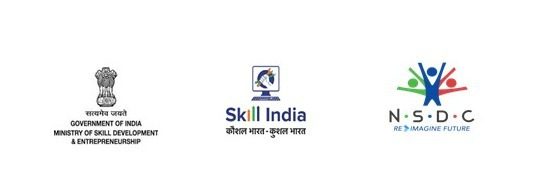Unlock the Power of Health with Essential Drugs: A Lifesaving Solution for All

The Community Medical Services & Essential Drugs (CMS & ED) course is a diploma program designed for individuals who want to play a critical role in primary healthcare delivery, especially in rural and underserved areas. This program focuses on training individuals to provide essential medical services, administer primary healthcare, and manage common illnesses using essential drugs. It aims to fill the gap in healthcare services where professional medical practitioners may not be readily available.
Course Overview
The CMS & ED course is tailored for aspiring healthcare professionals who seek to contribute to community health by providing medical services, education, and care at the grassroots level. The curriculum is designed to cover key areas such as basic healthcare, pharmacology, patient care, and the appropriate use of essential drugs for common ailments.
Key Details
- Course Name: Community Medical Services & Essential Drugs (CMS & ED)
- Duration: 18 months to 2 years
- Eligibility:
- Minimum qualification of 10th or 12th standard (varies by institute).
- Preference for individuals with a healthcare background such as nursing or paramedical staff.
- Mode of Study: Classroom lectures, practical training, and fieldwork.
- Certification: UGC, MCI, PCI Approved university Asian International University.
- Career Opportunities: Primary healthcare providers in rural areas, healthcare assistants, dispensary managers, community health workers.
Why Choose the CMS & ED Course?
- Primary Healthcare Focus: This course is specifically designed to meet the healthcare needs of rural and underserved populations. You’ll learn how to manage common ailments, provide basic healthcare services, and dispense essential drugs.
- Affordable and Accessible Healthcare: The course trains individuals to deliver low-cost, effective healthcare solutions, making them a vital part of the healthcare system in regions where access to doctors is limited.
- Hands-On Training: Practical experience in real-world community settings is a key component of this course. You’ll learn to assess patients, prescribe basic treatments, and offer health education in rural clinics or dispensaries.
- Social Impact: As a CMS & ED graduate, you will be directly contributing to improving public health in your community. Your services will be crucial in preventing the spread of diseases, promoting hygiene, and ensuring that essential medicines are accessible to everyone.
- Career Flexibility: With this diploma, you can work in a variety of settings, including rural health clinics, community health centers, and dispensaries. Additionally, CMS & ED holders often collaborate with government and non-government organizations (NGOs) focused on healthcare delivery.
Course Structure and Subjects
The CMS & ED curriculum is a blend of theoretical knowledge and practical skills designed to prepare students to become competent community healthcare providers. The subjects covered include:
First Year:
- Introduction to Community Health: Understanding the principles of community health and the role of healthcare providers in rural areas.
- Basic Anatomy and Physiology: Learning the structure and function of the human body.
- Common Diseases and Illnesses: Overview of frequently occurring diseases, their symptoms, and primary treatment protocols.
- Pharmacology: Study of essential drugs, their uses, dosages, side effects, and precautions.
- First Aid and Emergency Care: Training in providing initial care for emergencies like injuries, accidents, and sudden illnesses.
- Patient Communication: Effective communication strategies for interacting with patients and educating them about health practices.
Second Year:
- Essential Drugs and Their Administration: Detailed study of how to prescribe and administer essential drugs in a community setting.
- Maternal and Child Health: Focus on basic maternal care, child nutrition, immunization, and preventive measures for common childhood diseases.
- Public Health and Hygiene: Teaching the importance of public health initiatives like sanitation, clean water, and controlling the spread of infectious diseases.
- Preventive Healthcare: Strategies for disease prevention, including vaccination programs and public health campaigns.
- Practical Training and Fieldwork: Hands-on training in clinics or community health centers to apply the theoretical knowledge gained during the course.
Career Opportunities After CMS & ED
Upon completing the CMS & ED course, graduates have a wide range of career options in the healthcare sector, particularly in rural or underserved regions. Some of the career paths include:
- Primary Healthcare Provider: Work in rural clinics, providing essential healthcare services such as diagnosing common illnesses and prescribing essential medications.
- Community Health Worker: Promote public health initiatives, educate communities on preventive health practices, and support immunization and hygiene programs.
- Dispensary Manager: Manage small dispensaries or clinics, ensuring the availability of essential medicines and providing basic medical care.
- Healthcare Assistant: Assist doctors or nurses in healthcare facilities, manage patient records, and provide support in routine care procedures.
- Collaboration with NGOs: Work with non-government organizations focused on rural healthcare and public health programs to deliver medical services at the community level.
Admission Process
The admission process for the CMS & ED course may vary depending on the institute offering the program. However, the general admission procedure includes:
- Eligibility Check: Candidates must meet the educational requirements, typically a 10th or 12th-grade pass, and may need to have a healthcare background.
- Application: Interested candidates can apply online or directly at the institute.
- Entrance Exam/Interview: Some institutes may conduct entrance exams or interviews to select students based on their aptitude for community healthcare.
- Selection: Admissions are based on merit, healthcare experience, and performance in the entrance exam/interview.
Importance of CMS & ED in Rural Healthcare
The CMS & ED course plays a crucial role in addressing the healthcare challenges in rural India, where access to qualified doctors and advanced healthcare facilities is limited. By training healthcare professionals to provide primary care and dispense essential medicines, this course helps in bridging the healthcare gap in remote areas.
Graduates of the CMS & ED program are often the first point of contact for patients in rural settings, making their role indispensable. They are equipped to provide initial diagnosis, treat common illnesses, promote healthy practices, and refer patients to higher-level medical facilities if needed.
Conclusion
The Community Medical Services & Essential Drugs (CMS & ED) course offers a unique opportunity to make a significant impact on public health, particularly in underserved areas. With its blend of theory and practical training, this program prepares healthcare workers to provide essential medical services, ensuring that communities receive the care they need. Whether you are looking to start a rewarding career in healthcare or expand your knowledge, the CMS & ED diploma is a gateway to making a real difference in people’s lives.

